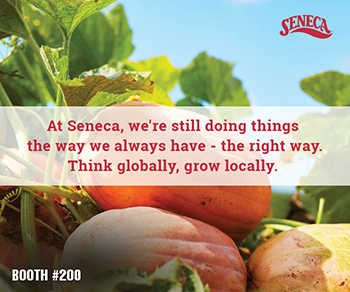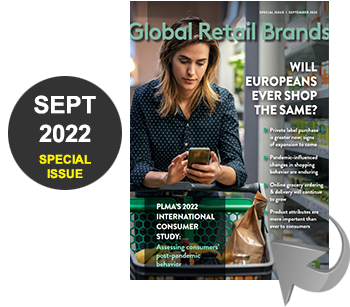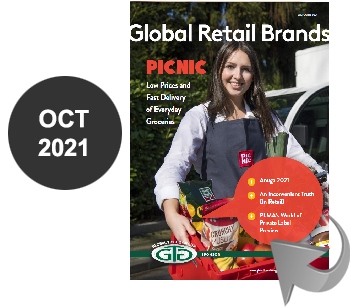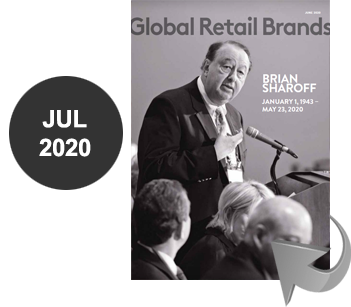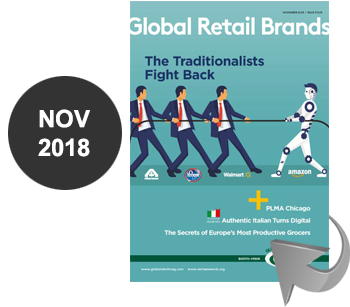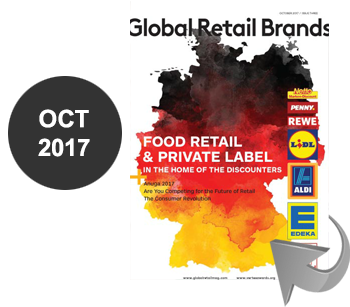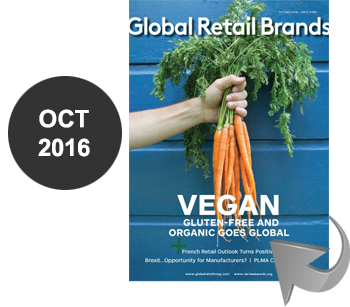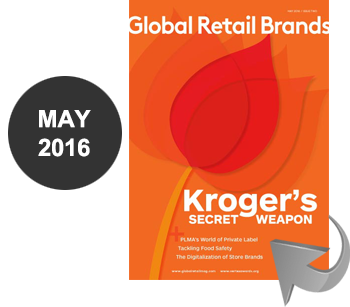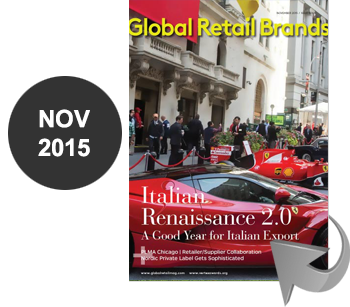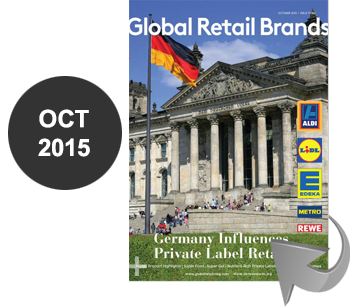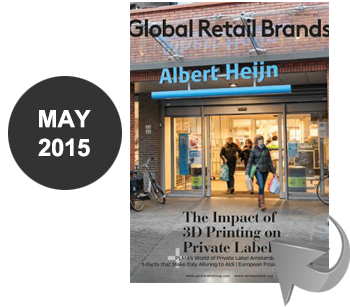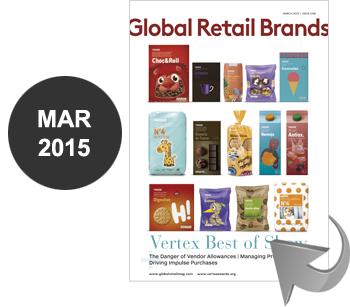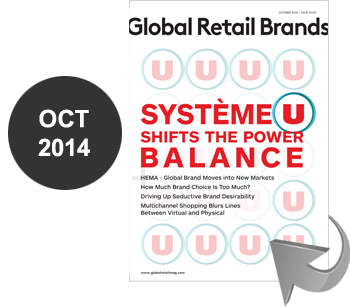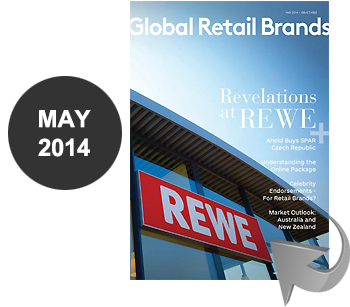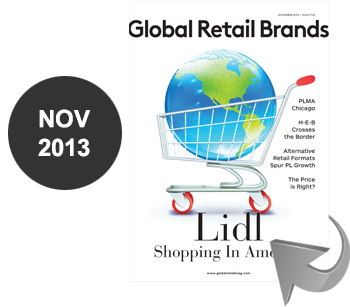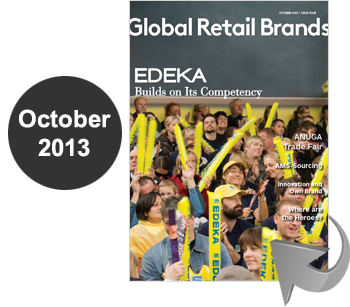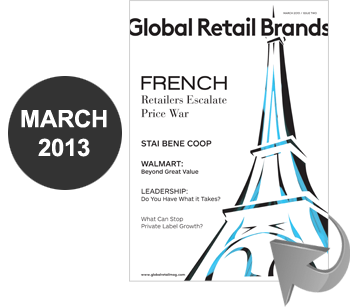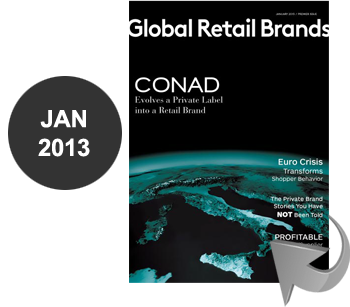From LZ Retailytics
Edeka to Launch Organic Concept
By Matthias Queck, Research Director & Discounter Expert

Germany’s leading grocer Edeka is preparing to launch its own organic food store chain, dubbed Naturkind. The move comes after it has opened its first drugstores in co-operation with small family company Budni.
Although it comes as no surprise that Edeka is finally also trying to get a foothold in the lucrative and growing organic food market, it is remarkable that – unlike for its drugstore venture – the co-operative is going it all alone. It is doing so with help from organic wholesalers but without the store expertise of an existing retailer in the sector, of which there would be several. Key competitor Rewe Group tried it all on its own more than once but failed so far. Schwarz Group, via Lidl, wanted to acquire a specialist grocer, but underestimated the opposition emerging from the ethical conviction of those who would not want to sell off to an ‘evil’ discount retailer.
Indeed, the romantic image of a sustainably managed corner store for organics conflicts with a 59-billioneuro retail conglomerate, which is Edeka. But given the lack of new business fields for Edeka – the only major German grocer without operations abroad – it simply has to give it a try. Relying on the food expertise of its own independent shopkeepers may help. Unlike in the case of drugstores, where Budni with its in-house expertise will have to fight with overly strong family companies dm and Rossmann, the competition in the organic-only sector is highly fragmented and no real threat to the number one, even if takes a bit longer to grow organics the organic way. Anyway, the biggest retailer for organic foods in Germany still is: … discounter Aldi!
Big Box Loses Ground in Central & Eastern Europe
By Sebastian Rennack, Senior Retail Analyst & CEE Expert

Tesco in Poland announced plans to downsize all its hypermarkets to a more compact format. Over the last five years, the retailer has already closed almost 100 stores in the country. Now, the average sales areas of the remaining 60 big boxes will be reduced by one-third. According to data from the Polish Ministry of Finance, Tesco’s net revenue in 2018 went down by 2.1 percent while earnings before taxes fell to -3.8 percent from revenue after slipping into the red in 2017.
The demise of the old big box format, what used to be a phenomenon for mature markets only, is now reaching the emerging markets of Europe. According to LZ Retailytics data, the market share of hypermarkets (with a sales area larger than 2,500 sq m) in organised retail in the region will decline from 23.6 percent end of 2018 to 19.8 percent by 2023.
Local Proximity Formats Take the Lead
In developed markets – like Germany or the UK – discounters chip away at catchment areas of large formats. In contrast to that in Central & Eastern Europe, it is small-sized proximity formats that expand into more rural locations with an offer catering to consumers with a more traditional mindset.
Profi in Romania, Dino in Poland and Studenac in Croatia – all are domestic single-country minimarket operators who have been growing at double-digit figures, despite the presence of large multinationals. Their assortments feature a full food range, often procured from mediumsized domestic producers. Most of the concepts not only emphasize national and local origin of the goods, but also include serviced fresh counters. Dino and Studenac even run their own meat processing factories.
In the past, this strategy has proven highly effective in retail frameworks of the emerging markets, constituting a major differentiation point against discount giants such as Aldi and Lidl. However, this might change soon. In their metamorphosis towards the supermarket format, almost all big discount players have started trialling serviced counters: Aldi and Lidl started an unofficial test in selected Hungarian stores while Polish discount market leader Biedronka officially announced plans to open counters in 70 out of its almost 3000 stores by the end of the year. German discounter Penny (Rewe Group) is experimenting with concessionaire butchers and piloting own service departments in the Czech Republic and in Romania. If the results of these pilot projects will justify further roll-out, this will be one more factor that will significantly accelerate big box‘s decline in CEE.
Retail Food Specialists Grow
By Gildas AÏtamer, Senior Retail Analyst & France Expert

Organic and Wholefood stores as well as Beer, Wines and Spirits chains; Frozen Food operators and other retail Food Specialists are thriving in Europe. The 15 largest operators in the channel account for 1.9% of the European grocery market in 2018 and will reach 2.4% by 2023, LZ Retailytics data shows. This represents a combined EUR13.7bn in additional retail sales across Europe. To put this into perspective, the minimarkets and hypermarkets are expected to post a EUR25.7bn and EUR27.4bn increase during the same period.
A good example of food specialists nibbling away at market shares can be seen in France, paradoxically the home of “everything under one roof” hypermarkets. There, three food specialists already saw sales soar above the EUR1bn milestone: Picard (frozen food), Biocoop (organic food), and Grand Frais (fresh produce). The last two posted sales up double digits last year. They will see their combined market shares grow from 1.5% in 2018 to 2.1% in 2023, representing a footprint in the French retail market similar to that of discounter Aldi.
Very much like suppliers looking for new distribution channels, full-range grocers are looking to tap into these expanding grocery territories for growth, either by expending relevant product categories at their oversized big boxes, launching dedicated banners of their own, or acquiring already established players. Earlier this year, liquor store operators Krasnoe & Beloe (ca. 7,400 stores), Albion-2002 (4,200 stores) and Russian retailer Dixy announced their plan to merge, potentially creating Russia’s third largest grocery retailer, reminding once again that the potential of these food specialists should not be overlooked.
Case Study: How Lidl got the most out of Beyond Meat’s German market entry
By Denise Klug Director of Product & Private Label Expert

When trendy vegan burger patty producer Beyond Meat hit the German market earlier this year, it decided to do its retail debut at Lidl. A clever move which is already justified by the sheer size and footprint of the massive discount chain.
Lidl first announced the impermanent special offer extensively via all social media channels creating a huge stir. But then, the meat substitute was sold out within hours, resulting in a frustrated outcry of shoppers.
Planning to launch a European production facility not until 2020, the brand – or European distributer Zandbergen – appeared to be overwhelmed by the huge demand. Customers also wondered if Lidl was not smart enough to better predict that this product was a bestseller. But Lidl wouldn’t be the largest retail chain in Europe (by sales) if it was not also one of the most strategic players.
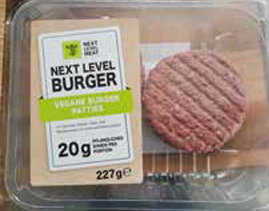
It had the chance to use the Beyond Meat trial to identify the demand, get huge media coverage (there is no such thing as bad publicity) and lure in excited shoppers of the perfect target groups into its stores (even if fake-meat patty shelves were empty – they actively entered the outlets!).
Directly after Aldi announced it was going to launch an advanced meatfree burger patty, Lidl got there first and surprisingly put its own private label copycat on the market – four days earlier than the arch-rival.
The packaging of its “Beyond Burger” looks like a carbon copy of the brand. And also, just like the brand, it is displayed next to meat products and not in the vegetarian section which helps to be seen as a direct alternative by flexitarians. A good plan, as this group is growing rapidly and will become even larger in the near future.
Your direct line to LZ Retailytics Food Retail Experts: [email protected]

